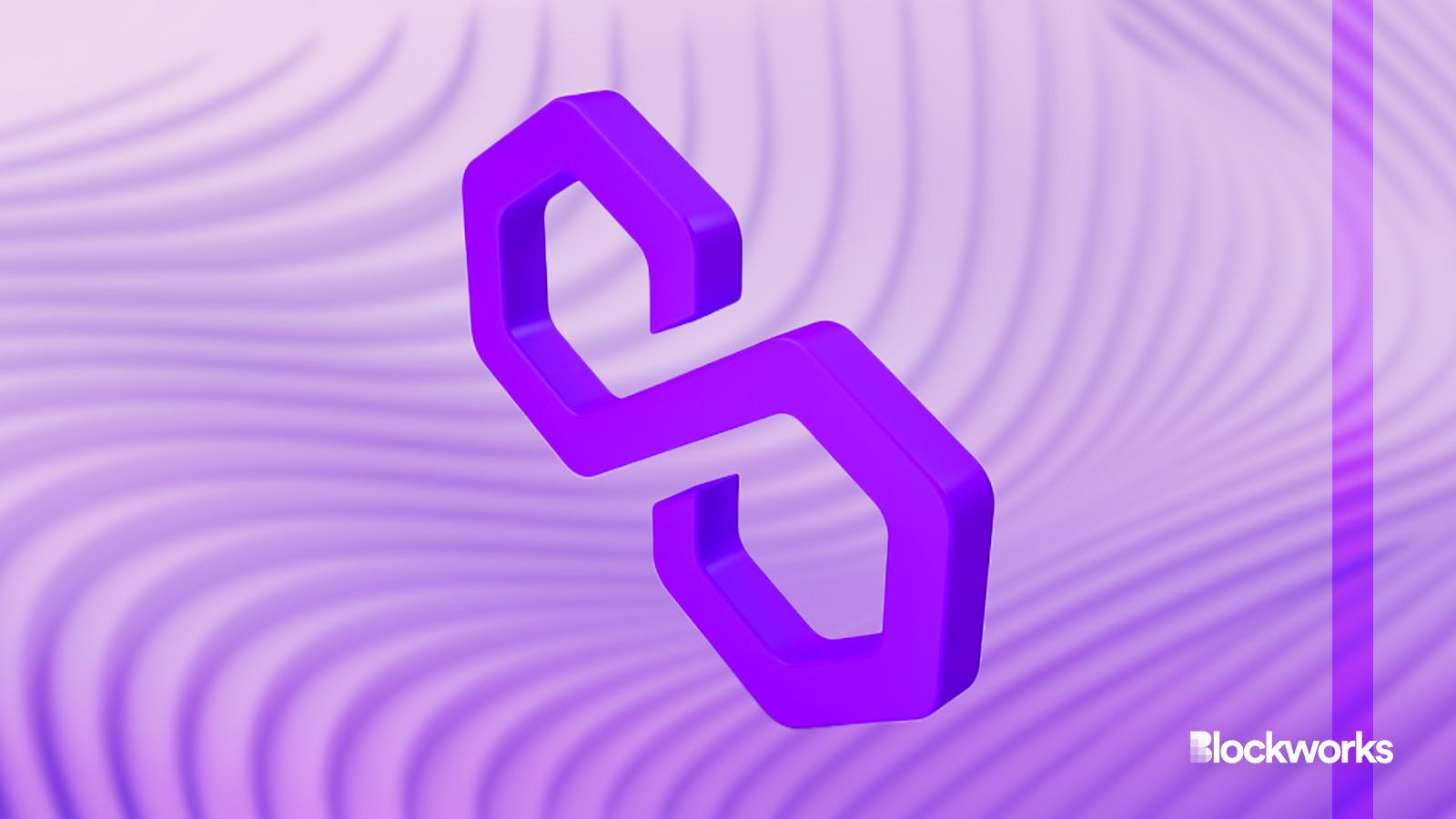Polygon zkEVM prover reaches Type 1 status
A Fully Ethereum equivalent prover means that it does not need to change any part of Ethereum in order to generate proofs

Polygon and Adobe Stock modified by Blockworks
Polygon Labs, the infrastructure team behind the Polygon ecosystem, has revealed its latest innovation — a Polygon zero-knowledge Ethereum Virtual Machine (zkEVM) Type 1 prover.
Provers on the blockchain are computational entities that attest to whether or not a piece of information is accurate without revealing the underlying data. These provers create “proofs” that are then validated by verifiers.
A Type 1 prover indicates the highest level of compatibility with the Ethereum blockchain. This means that it does not need to change any part of Ethereum in order to generate a proof. This includes storage structure, hash functionality or any other consensus logic.
According to Brendan Farmer, co-founder of Polygon, Type 1 zkEVMs must make performance trade-offs when it comes to proof generation and requires more computation, but ultimately makes Ethereum layer-1 itself much more scalable.
Read More: How to decentralize a prover, according to an engineer who did it for fun
The Polygon team has worked on the proving system — Plonky2 — for over 16 months. By the end of this year, it is expected that the team will release Plonky3, which will see significant performance improvements, Farmer notes.
The new Type 1 zkEVM prover is completely open source, with a dual license under MIT and Apache 2.0. The MIT license carries very few restrictions, as does the Apache 2.0 license, though users who make significant changes to the code must mark the modifications.
By introducing the Type 1 prover, any existing EVM equivalent blockchain can become a zk layer-2 solution and integrate into the Polygon ecosystem through its aggregation layer without having to fork its network. This includes the likes of Manta, Canto and Celo, Farmer said. Polygon’s zkEVM prover will also be compatible with Type 2 zkEVMs at a lower cost.
Polygon’s aggregation layer was introduced in January as an alternative to existing scaling narratives — monolithic and modular blockchains — and is designed to center scaling around its own unified AggLayer, a protocol that provides cross-chain UX.
Polygon is not the first team to have introduced this type of architecture. In August last year, Risc Zero introduced its “Type 0” zkEVM, Zeth, a general-purpose programming language that could be EVM equivalent.
Read More: Risc Zero introduces ‘Type 0’ zkEVM to make zero-knowledge tech more accessible
Unlike Type 1 zkEVMs, Type 0 zkEVMs are designed in a way so that developers can modify and customize their zk stack for compatibility with any network, like zkSolana, for example. Its downside, according to Farmer, is that it could be a little more costly.
Farmer predicts that in the coming weeks, performance on Polygon’s zkEVM prover will improve by around 35% and be roughly 50 times more affordable than its competitors’.
Get the news in your inbox. Explore Blockworks newsletters:
- The Breakdown: Decoding crypto and the markets. Daily.
- 0xResearch: Alpha in your inbox. Think like an analyst.






